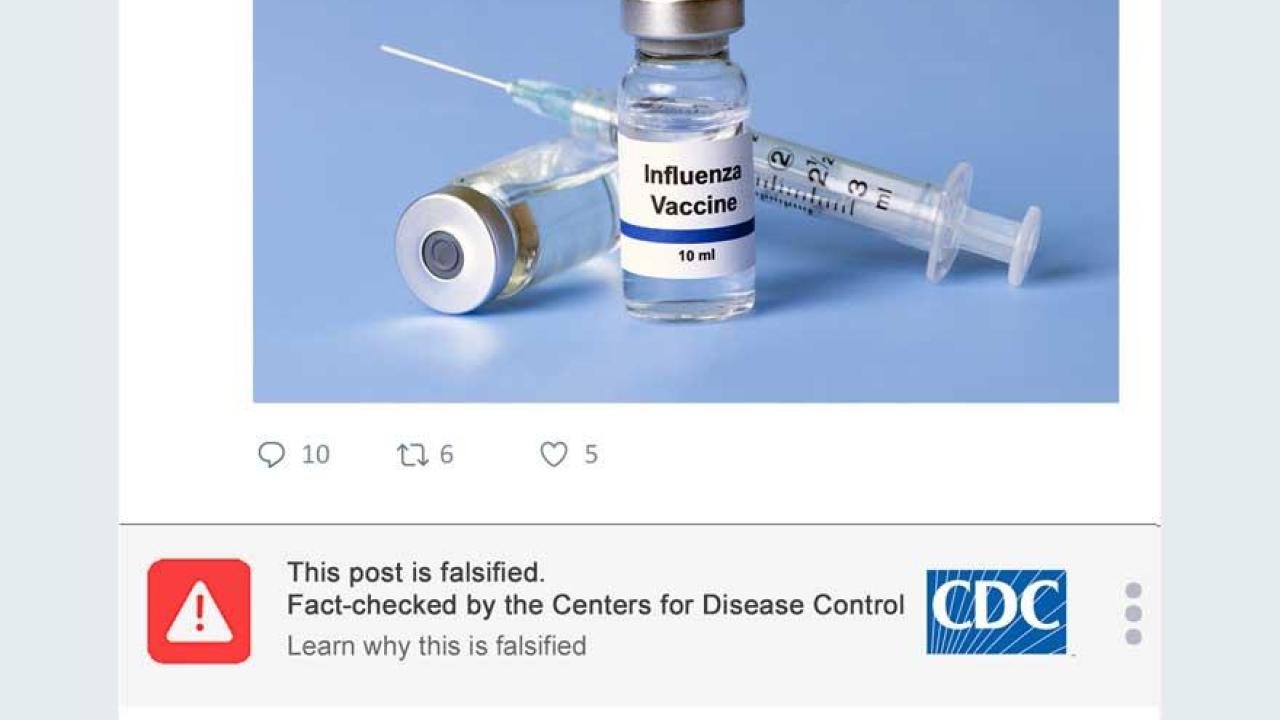
Vaccine Myths on Social Media Can Be Effectively Reduced With Credible Fact Checking
Simple Tags Can Make a Difference
By Karen Nikos-Rose on January 7, 2021
Social media misinformation can negatively influence people’s attitudes about vaccine safety and effectiveness, but credible organizations — such as research universities and health institutions — can play a pivotal role in debunking myths with simple tags that link to factual information, University of California, Davis, researchers, suggest in a new study.
Researchers found that fact-check tags located immediately below or near a post can generate more positive attitudes toward vaccines than misinformation alone, and perceived source expertise makes a difference.
'In fact, fact-checking labels from health institutions and research universities were seen as more ‘expert’ than others, indirectly resulting in more positive attitudes toward vaccines,' said Jingwen Zhang, assistant professor of communication and lead author of the study.
The findings were published online Wednesday, Jan. 6, in the journal Preventive Medicine.
